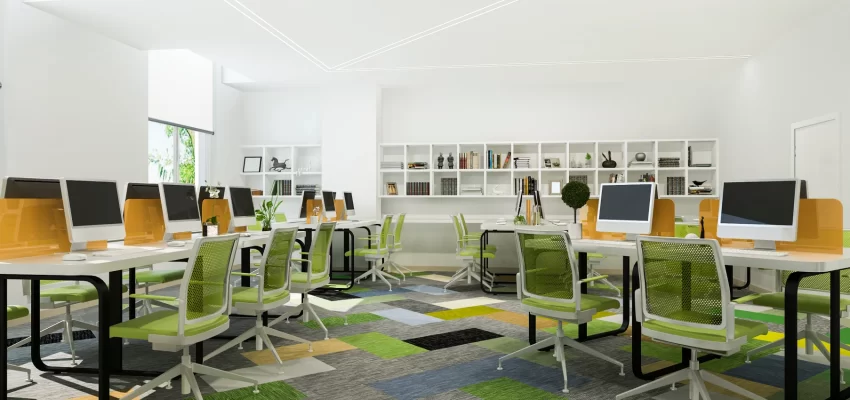How to Sell or Repurpose Furniture During Office Decommissioning

Maximizing Value: Smart Options for Your Used Office Furniture During a Business Move
When your company is relocating, downsizing, expanding, upgrading, or simply reconfiguring its office space, the process of office decommissioning can feel overwhelming. However, a strategic approach to your existing furniture – whether selling it or finding new uses for it – can significantly benefit your bottom line and your commitment to environmental responsibility. As experts in commercial office liquidation and FF&E (furniture, fixtures, and equipment) solutions, we’ve guided numerous businesses through successful transitions. Here’s a comprehensive guide to effectively managing your office furniture during this process.
Smart Steps for Selling or Repurposing Furniture
1. Thorough Inventory Assessment
Before you decide on the next steps, a detailed evaluation of all your office furniture is crucial to determine its condition and potential for resale or donation.
- Evaluate Condition: Carefully inspect each item to identify pieces that are in good, usable condition and suitable for a second life.
- Categorization: Organize your inventory into clear categories: items suitable for sale, donation, recycling, or responsible disposal.
2. Accurate Valuation
Understanding the fair market value of your furniture will help you set realistic goals for resale.
- Professional Appraisal: For higher-value furniture or large quantities, consider engaging a professional appraiser for an accurate assessment.
- Market Research: Explore online marketplaces like eBay, Craigslist, and Facebook Marketplace, as well as specialized used office furniture sites, to understand current pricing for comparable items in the market.
3. Effective Selling Strategies
To ensure an efficient and potentially profitable liquidation process, explore these selling avenues:
- Online Marketplaces: User-friendly platforms like eBay, Craigslist, and Facebook Marketplace can be effective for reaching a broad audience of individual buyers and small businesses. Be sure to provide clear descriptions and high-quality photos.
- On-Site Liquidation Sales: Hosting a sale directly from your office space can generate quick revenue and reduce the need for transportation. Promote the sale to employees and local businesses.
- Professional Liquidation Services: Partnering with a specialized commercial office liquidation company streamlines the entire process. These experts have the network and experience to efficiently market and sell your furniture, handling logistics and maximizing returns.
4. Meaningful Donations
Donating usable furniture is a socially responsible option that can also provide tax benefits (consult with your tax advisor).
- Local Charities and Non-Profits: Many charitable organizations, schools, and community centers are in need of gently used office furniture. Research local organizations whose mission aligns with your company’s values.
- Convenient Pickup Arrangements: Inquire whether potential recipient organizations offer free pickup services for larger furniture items, simplifying the donation process.
5. Environmentally Conscious Recycling
When furniture cannot be sold or donated, prioritize environmentally sound disposal methods.
- Sustainable Recycling Practices: Look for companies that specialize in dismantling office furniture and separating materials like metal, wood, and plastic for recycling. This significantly reduces landfill waste.
- Local Recycling Facilities: Partner with reputable recycling centers in your area that handle commercial materials.
6. Responsible Disposal
As a last resort, ensure that any remaining furniture is disposed of properly and legally.
- Professional Waste Management Services: Coordinate with your local waste management provider for compliant disposal options.
- Reputable Junk Removal Companies: Consider hiring a junk removal service that is committed to responsible disposal practices and diverting waste from landfills whenever possible.
Key Tips for a Smooth Transition
- Detailed Documentation: Maintain thorough records of all furniture items, including descriptions, photographs, and transaction details (sales, donations, disposals).
- Employee Engagement: Involve your employees in the process by communicating plans, offering opportunities to purchase furniture, or participating in donation efforts. This can improve morale and transparency.
- Highlight Sustainability Initiatives: Emphasize your company’s commitment to corporate social responsibility by communicating your efforts to minimize waste and support sustainability through the decommissioning process. This resonates positively with stakeholders.
By taking a proactive and well-organized approach to selling or repurposing your office furniture, your business can recover value, reduce environmental impact, and ensure a smoother office transition. Whether you choose to sell, donate, or recycle, the right strategies and expert guidance can make all the difference.
Copyright © 2026 RJV Office Furnishing LLC
eLtru Group Of Companies



